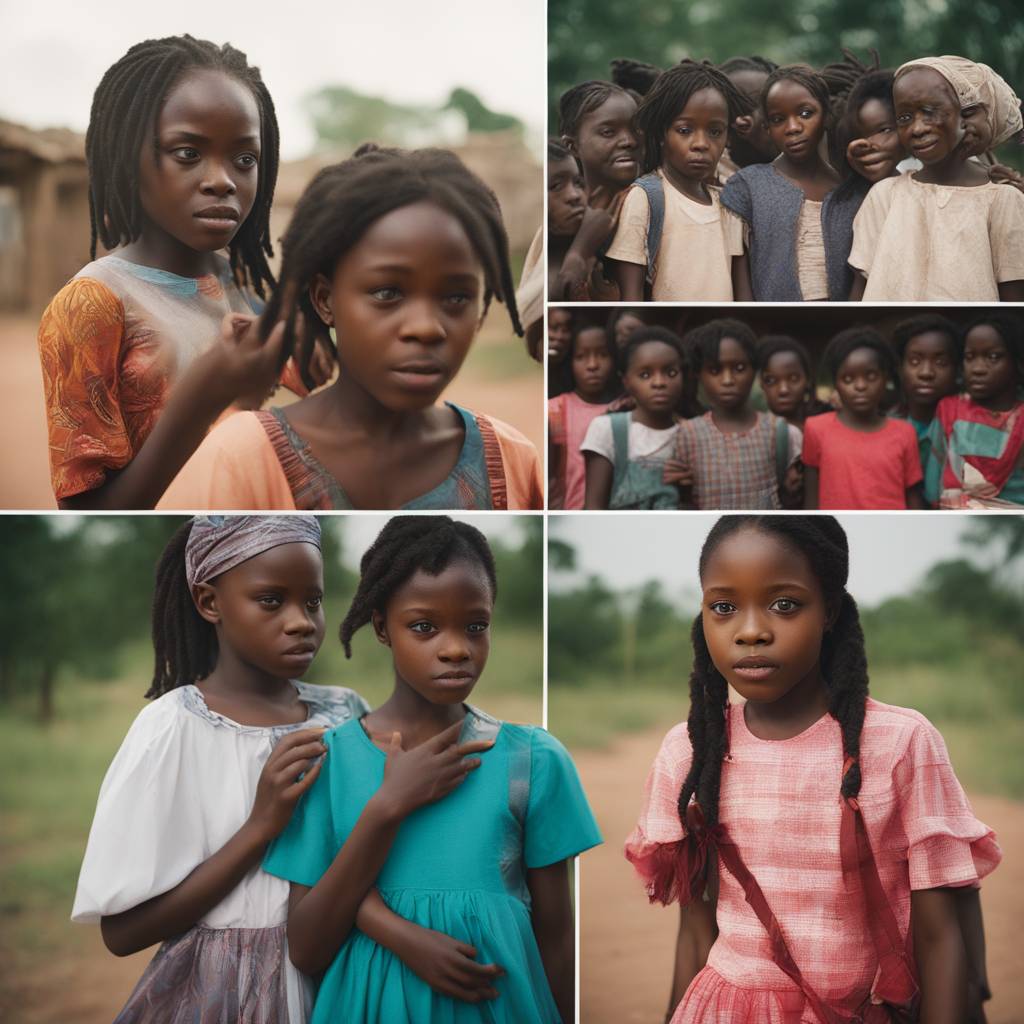Lawan Zanna mourns for his daughter Aisha, who was kidnapped by Islamic extremists in the infamous Chibok school abduction. This event, which occurred 10 years ago, involved the kidnapping of 276 schoolgirls and sparked the global #BringBackOurGirls campaign. Despite international attention, nearly 100 girls remain missing, with many victims being kidnapped and released only after ransoms were paid or government-backed deals were made. Since the Chibok kidnapping, at least 1,400 students in Nigeria have been kidnapped, particularly in conflict-battered regions.
To commemorate the 10th anniversary of the Chibok kidnapping, a collaborative film project titled “Statues Also Breathe” was presented by artist Prune Nourry and Nigeria’s Obafemi Awolowo University. This film aims to raise awareness about the ongoing plight of the missing girls and the global struggle for girls’ education. The project features 108 sculptures representing the missing girls, with each sculpture attempting to recreate their current appearance using images provided by their families. The film captures the emotional testimonies of freed women who suffered through captivity and heartbroken mothers who long for their missing daughters.
Despite efforts to bring attention to the missing Chibok girls, Nigerian authorities have been criticized for their handling of the situation. Activists like Chioma Agwuegbo, who was involved in the #BringBackOurGirls campaign, argue that the government has not done enough to free the remaining women nor has it properly supported those who have been released. The security lapses that led to the Chibok kidnapping still persist in many Nigerian schools, putting students at risk. A recent survey found that only 43% of minimum safety standards are met in over 6,000 schools across the country.
Analysts express concerns over the lack of security measures in Nigerian schools and the overstretched military and police personnel responsible for ensuring safety. Efforts to update the public on the status of the remaining Chibok women have been scarce, leaving families in anguish over the fate of their loved ones. Some freed women have reported that those still missing have been forcibly married to the extremists, highlighting the ongoing challenges faced by female kidnap victims. Despite some Chibok women managing to escape captivity, many families feel hopeless about the fate of those who remain missing.
As the Chibok school abduction continues to haunt families and communities in Nigeria, the global community must not forget the ongoing struggles faced by the missing girls and their families. The lack of accountability from Nigerian authorities, combined with security lapses in schools, poses a continued threat to students’ safety and the protection of children from extremist groups. The emotional toll of the Chibok kidnapping remains evident in the heartfelt testimonies of survivors and grieving families who continue to pray for the safe return of their loved ones, like Lawan Zanna and his daughter Aisha.


